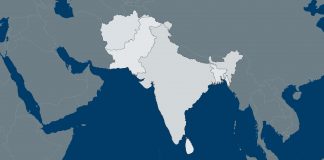Jacob L. Shapiro: Hello everyone and welcome to another Geopolitical Futures podcast. I’m Jacob Shapiro, director of analysis. I am joined this week by Kamran Bokhari. How are you Kamran?
Kamran Bokhari: I’m doing good, Jacob.
JLS: I am coming to you from Austin, Texas where it snowed last night. I’m not certain that the apocalypse hasn’t already begun. How is the weather in D.C. Kamran?
KB: It’s cloudy. It’s not as cold as it should be but it’s cold enough.
JLS: Well Texas is taking up that cold weather and it’s very disconcerting, but we will podcast our way through it. What we’re going to talk about this week is we’re going to talk about the song that never ends, the Israeli-Palestinian conflict. And we’re going to be talking about it because the White House and Donald Trump came out with an announcement earlier this week that they intend to follow through on Trump’s campaign promise to move the U.S. embassy from Tel Aviv to Jerusalem.
And there’s already been a lot of different reaction in the region, outside the region to this decision. We’re going to try and shed a little bit of light on this. Kamran, how about before we get into the nitty-gritty of it, why don’t we explain for people why Jerusalem is so important? Why do the three major monotheisms all think of Jerusalem as an important city?
KB: I mean it is a focal point. It’s where all the Abrahamic faiths or the trialogue of the Abrahamic faith or the lack thereof converges because this is the same piece of geopolitical real estate where Jesus Christ was born. Judaism was born here with prophet Abraham and then the prophets all the way to David and Moses. And finally while the prophet Muhammad did not live here or was not from here, he is according to Islamic tradition have been brought by the Archangel Gabriel to Jerusalem from Mecca in one night, where there was his ascension to the heavens and his return to Jerusalem and then the journey back to Mecca.
So this is theologically a very important place. And then when theology and politics mix it makes for an interesting, to say the very least, reality which is that we now have contested land and there’s a Jewish claim to it. The Christian claim is somehow folded into the Palestinian National narrative where the Christians and Muslims articulate their claim through the lens or the framework of Palestinian Nationalism.
And so this is a Palestinian issue, this is an Arab issue, this is a Jewish issue, this is a European issue, this is an American issue, this is an issue for Muslims living in the now in the Philippines. So the resonance of anything that happens here is pretty far and wide.
JLS: Yeah and I want to say a word about you talked about the theology and you talked about the politics. But Jerusalem is also an important strategic city and it always has been. And it’s not a coincidence that a number of different groups claim Jerusalem or think of Jerusalem as important. If you look at a map of the Middle East and hopefully I think we’re going to have a map of the Middle East at the link for this podcast. I hope you can follow along with what I’m saying.
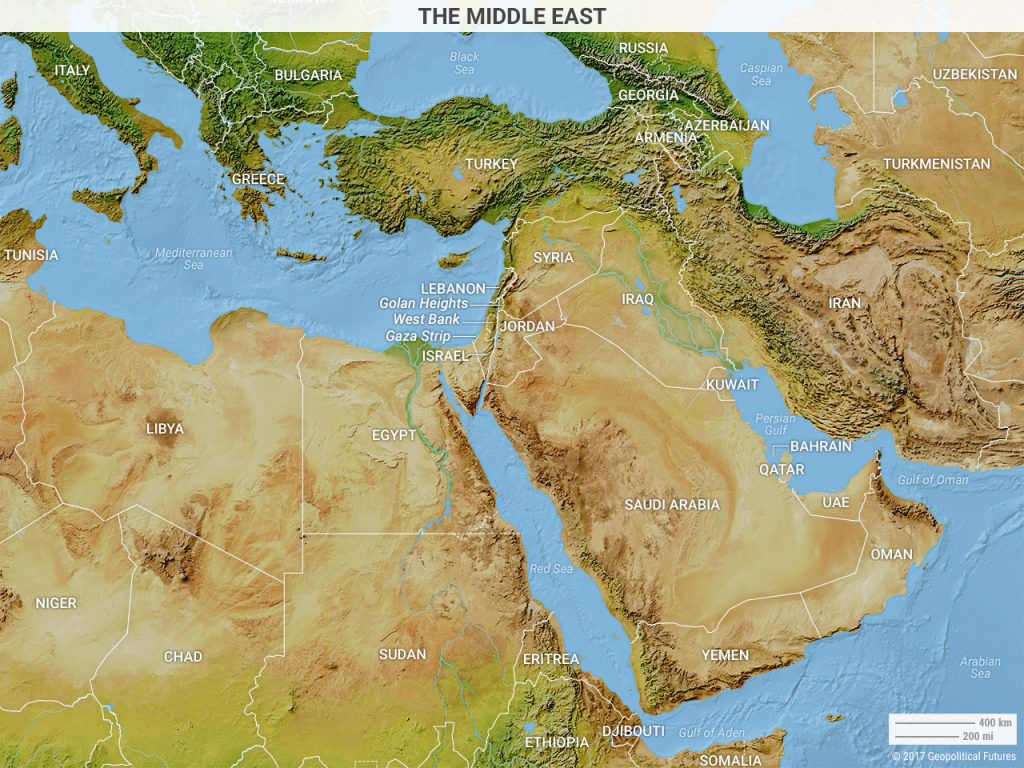
But if you look at a map of the Middle East, on the area that is today Israel which was Palestine, it was called Palestine by the Romans, that was the name for the province that it was. Before that, it was various different things. It’s really important strategic real estate in terms of control of the Middle East. The first thing to note about it is it’s really a crossroads between a bunch of different areas. So Egypt for example, the ancient Egyptian kingdoms, always moved up past the Sinai into what is today Israel, because if they could control that, they could control blocking position from anybody that would come down into Egypt and try and conquer Cairo or mess things up there or what is today Cairo, it wasn’t Cairo back then I don’t think.
If you’re a power in what is today Turkey, securing Israel is important for making sure that your southern flank is not susceptible. If you are Iran, if you can somehow control that real estate, that completes your ability to project power all the way out to the Mediterranean. Now that’s sort of present-day Israel in sort of grand strategic sense.
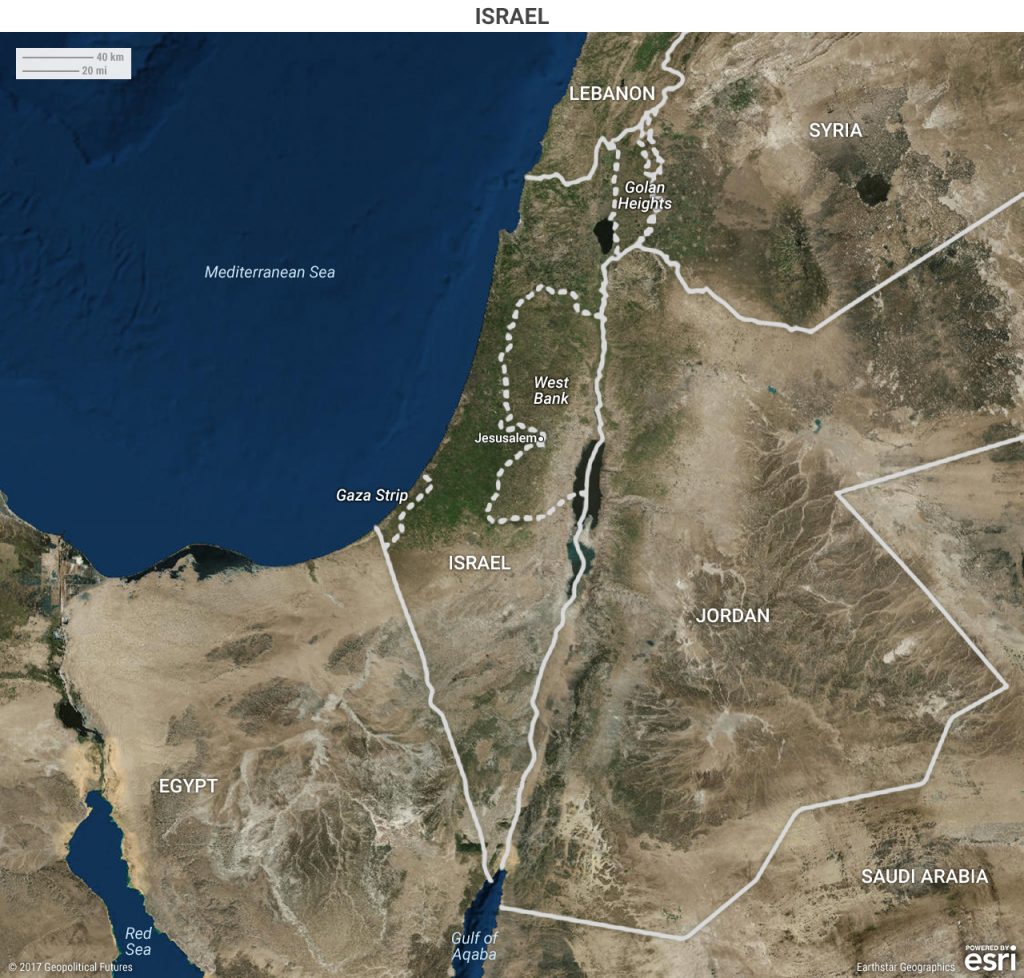
But Jerusalem within Israel itself is also important. Present day Israel is made up of three key geographic regions. It’s made up of the southern desert region, the Negev. It’s made up of sort of the northern plains, I guess you could call it for lack of a better word, which extends from Tel Aviv up to Haifa, that’s a flat, prosperous area that can grow things very easily.
But then Jerusalem is part of the hill country. And it always bred sort of a tougher, it’s a tougher place to live I should say. And it always bred warriors. And if you were going to control the real estate that present-day Israel controls right now, Jerusalem was an obvious place to put the capitol because it was a way of cementing these three regions together and of tying them into one polity.
One of the interesting things about comparisons between let’s say biblical Israel and modern Israel said most of the same strategic real estate had to be held in order to hold the country. So you’re going to hear a lot about politics and religion and identity and stuff like that when you’re thinking about Jerusalem. And because I would say the geopolitics of this particular part of the Middle East are pretty hardwired in, I don’t see how Israel faces any key existential threats right now, Jerusalem is under Israeli control.
But long term, Jerusalem is a major prize for any entity that would want to exert dominance over the entire Middle East. So when we think about Jerusalem, it’s very easy to get lost in all these political squabbles but keep in mind that this is one of these cities that became important for strategic reasons. People projected a lot of different things on Jerusalem because of how important it was for strategic reasons. But I would argue that this is one of those examples where really if you look at the interests itself, that’s the reason that this became so important. Not because it was so important and then you know became strategically important. Would you agree with that argument Kamran?
KB: Absolutely. I mean I think that the geopolitical ground reality that you’ve just laid out is extremely important. It is, you know if I were to use for lack of a better term the word middle, it is in the middle of the Middle East. And it is a prized possession for anyone as you said trying to control the Middle East, trying to protect its core whether you’re Iran, whether you’re the Turks, whether you’re the Egyptians. Or whether you are, you know, a power on the Arabian Peninsula, to the extent that you are a power on the Arabian Peninsula.
So I completely agree with that and I think that that’s what happens is the discussion is focused on religion and pure politics. But in order to truly understand why we have such a massive conflict here, we can’t do it without actually looking at the geopolitics which has remained constant throughout history.
JLS: Well I think we’re going to spend most of this podcast talking about the ramifications of this move by the Trump administration. But I do Kamran, want to talk a little bit about the motivation behind the decision in the first place. And that’s something we have to talk about not just because I think it’s important to understand the motivation. But also because in our previous analysis we have talked about how we view relations in the United States and Israel diverging.
Now I want to just stop for a second and say that doesn’t mean that the U.S. and Israel are becoming enemies. I get a lot of angry letters all the time that say “How could you say this? That Israel and the United States don’t have a good relationship.” I’m not saying that they don’t have a good relationship.
What I am saying though is that the relationship is not as strong as it has been in the past. And that’s because the United States and Israel, that alliance really formed because of the Cold War, it was a classic Cold War relationship. A lot of the Arab States, Egypt, Syria, sided with the Soviet Union. Israel was one of the key countries that the United States had in the region to pursue its own interests. When the Soviet Union collapsed, so too did one of the key fundamentals that kept the United States and Israel close together.
Now all that said, we had said before that it didn’t matter whether it was going to be Trump in the White House or whether it was going to be Obama, we thought that relationship was still going to pull apart a little bit. That both sides, both Israel and the United States, were going to do things more in their own interests rather than always working together in lockstep. And I personally and publicly said that I doubted that the Trump administration would ever follow through on this campaign promise because it would just be too difficult for them.
They’ve proved me wrong. And I admit to being very confused by this entire thing because it seems to me to not be operating at the geopolitical level. But I’m thinking about it and I have some thoughts about why this is but maybe Kamran before I say what I think, what do you think is driving the Trump administration to this decision? What is the geopolitical logic of it?
KB: To me, it seems like Jacob there are a number of you know domestic and foreign policy issues that are manifesting itself or themselves in this decision. The Trump administration has prided itself on being unpredictable. The President has said, come out multiple times saying that unpredictability is a virtue and we must exercise it. He has criticized previous administrations when it comes to ISIS that you essentially telegraphed we were coming and then you were prepared for you when you went in.
And so nobody thought that this was going to happen. People said this was bluster in terms of campaign promises. And I think that appearing as unpredictable allows for greater leverage on other issues. We have a huge issue brewing on the Korean Peninsula, with North Korea withstanding all the pressure that the United States has put on it, thus far. And that’s made the, as we’ve written in our pieces, the U.S. position weak there. The U.S. has less and less ability to coerce the North Koreans.
I think that by engaging in a unpredictable way, something that people thought would not happen and basically saying that foreign policy is not going to be business as usual. Don’t expect this administration to be like the previous ones and the Obama administration, the Bush administration, the Clinton administration, all signed the waivers since 1995 saying ok yes we should, Congress says we should shift the embassy to Jerusalem but we’re not going to do it. Guess what? I’m going to do it. So I think that it allows leverage for the President.
But I also think that it helps the United States in terms of what it wants to achieve in the Middle East in the sense that there is a rising Iran. The cost of rolling back ISIS, degrading ISIS, has been the rise of Iran. Now the United States has to deal with that situation in some shape or form. It needs to build some sort of an alignment in the region. And we’ve seen the administration engaging in shuttle diplomacy, going to Saudi Arabia, going to Israel. And there’s this much touted thing about we need to have a Middle East peace. You cannot fight Iran unless you resolve the other issues. You can’t build a coalition on which the Arab states and Israel are on the same side.
So I think that in the give and take of trying to build this alliance, one of the things that perhaps the Israelis asked for is this, is that you recognize our claimed capitol and you shift your embassy. So here I am speculating because we don’t have much information. But if I were to place this development in the context of everything that the administration has been doing or needs to do, that’s what comes to mind.
JLS: Ok well I’ll try and layout a different logic chain here. Not completely different but a little bit different in key ways because I don’t think that the Israeli-Palestinian conflict has to be solved for Israel and the Arab States to work together. They’ve been working together some publicly, some underneath the table, for a long time. One of the great ironies of this entire conflict is that most of the Arab States have used the Palestinians for their own purposes, not really to you know, using the Palestinians and Palestinian nationalism was always a means to an end for a lot of these states.
I don’t know that I can say that it’s a result of geopolitical considerations, but I can say that the Trump administration has not actually done anything with this move. I mean certainly, it’s a symbolic move and it’s going to upset at least publicly a number of actors both within the region and outside the region and we’ll get to that when we talk about implications. But ultimately this is a symbolic move, it doesn’t actually change anything on the ground. Israel for all intents and purposes controls Jerusalem. There are parts of East Jerusalem that are still you know majority Palestinian. These realities are not going to change.
If you take the Trump administration at their word and if you think that they really do want to make a push for some kind of peace process for the Israel-Palestinian conflict and you see that the Trump administration has not been able to get the Palestinians or the Israelis to sit down. Maybe this is a way to do that. Maybe this is a way to show goodwill to the Israeli government and say hey you have an interest here in sitting down with us and you have an administration here that’s going to help you.
And on the flip side, this could be you know sort of classic Trump brinksmanship. Ok so if the Palestinians are not going to sit down then the U.S. is just going to move ahead and it’s going to recognize Jerusalem as the Israeli capital. It forces the Palestinians to think well what else is the U.S. going to look the other way on, as Israel goes forward with other things? And so I wonder if it isn’t something like that, if it isn’t a way to try and strong arm the Palestinians into some kind of negotiation.
We should also say that, you alluded to this a little bit but, the strategic ground all around Israel has changed. ISIS has been defeated, the Assad regime seems to be trying to consolidate control in Syria. The Assad regime has a good relationship with Iran although we’ve picked up little, tiny you know nuggets of some problems in that relationship there.
But Israel’s strategic environment is a little more uncertain today than it was even last year. And the last thing that Israel can afford right now is a spontaneous outbreak of Palestinian unrest in the West Bank or the in the Gaza Strip. We’ve seen Israel go on high alert on the border with Gaza. We’ve also seen them, reports of them deploying battalions even in the West Bank to manage things there.
But I think with that Kamran, I want to turn to ask you a little bit more about implications of this decision. I think the fact that there has been no massive outpouring of unrest in the West Bank or in the Gaza Strip is maybe actually a sign that this isn’t going to be hugely consequential. I think it probably would’ve already broken out if it was going to. That doesn’t mean something else can set it off in the future.
But just looking at the reaction to this particular decision in the Palestinian territories, it doesn’t seem to me to have set off something that is significant to the geopolitical level. How do you see this both in terms of the Palestinian reaction but also in terms of Israel’s relationships and the U.S.’s relationship with the broader region?
KB: So I think you’re right that we have a situation where there is fatigue in the region. Bandwidth attention span is really stretched to the maximum. Every other day there is something or the other that is taking place that is described as the sky is falling. So there’s only so much excitement that can be generated when you’re always excited. You know ok Iran did this today, a rocket was fired from Yemen to Riyadh, ISIS, you know Iran expanding itself in Lebanon, the resignation of Hariri. So the list goes on and on.
In an atmosphere like that, it’s not surprising to see that people have not really reacted the way you would expect them to, that this is you know an affront to sensibilities, political and religious and otherwise and therefore you would see an outpouring, a backlash, a fallout. And that has not happened and I think that it’s function of just so much happening, the atmosphere, the environment, is really saturated with developments.
And what that does is that fragments that critical mass that people expect to form to come out and say ok there going to be protests and demonstrations and things are going to get ugly and this could go on for days and weeks. People forget that A: there has to be interest in the issue to the level where you are willing to not go to your job or your store or your shop if you’re a Palestinian in the West Bank or Gaza. And these are places that are not doing economically very well. In fact, they are really suffering from an economic point of view.
So there’s not much excitement. So people say ok Jerusalem has been recognized and we’re going to lose Jerusalem. People get angry, they you know discuss, they may go to the Friday prayers in large numbers to hear the Imam or the Khatib speak about it and come out and do some protests. But there’s no shortage of actors that like to exploit it. But I think that people are tired and there’s fatigue. So that’s why I don’t see Palestinians coming out.
The same thing could be said about you know the wider Arab street, the proverbial Arab street and unrest in the wider Muslim world. There’s just so many divisions. There’s so many actors that are pulling the attention span of the same critical mass that everybody needs to pursue whatever they want. And it’s fragmented. And that’s why we’re seeing very little turnout if you will.
JLS: Do you think that that state of affairs will continue Kamran or do you think that there’s a larger backlash coming?
KB: Well there are two things that usually act as catalysts for something bigger, even if it wasn’t initially big enough. So one is how are the authorities going to handle this? If the authorities engage in a massive crackdown, so for example if the Israelis you know if they’re moved to quell the demonstrations, results in the loss of life or injuries. Then that becomes the reason for other people to join into the protest and say ok I wasn’t interested in the beginning but now my cousin, my friend got hurt and I need to be part of this. So that could mushroom potentially.
And then there are, as I mentioned earlier, there are no shortage of actors, you know Hamas and Iran and ISIS and other actors who’d like to exploit this. And you mentioned this while you were talking, that the Palestinians unfortunately from their point of view, are those who have been exploited by everybody. Everybody uses the Palestinian issue, not to further the Palestinian cause, but their own cause.
And so, if someone were to introduce violence at some level that was not planned by the people who came out and protested then that could lead to a greater unrest because then the Israeli authorities will have to crack down even harder and things could get out of hand. So those are two contexts that come to mind that could lead to a much bigger unrest on this issue down the road potentially. So far, we’re not seeing it.
Shapiro: Well here’s a much different question, do you think that it could lead to a real attempt at an Israeli-Palestinian peace process? I know that it’s sort of strange to ask that question. One of my old colleagues used to always say that the Israeli-Palestinian conflict is job security, because it’s just going to go on forever and ever.
And I have to say that you know from the vantage point of somebody looking at this from the outside in, you know a lot of people have said well by moving the embassy to Jerusalem it kills the peace process. What peace process? There hasn’t been a peace process for probably over a decade right now, at least one that had any serious chance of working.
Do you think that this symbolic gesture by the United States will strong arm the Palestinians into at least sitting down at the table and talking? Or do you think that this will harden hearts on both sides and just lead to more of the sort of rhetorical same that we always see?
KB: So one of the reasons why and you rightfully explain it is that there hasn’t been a peace process is because there is no one Palestinian side. There are Palestinian sides in the plural. And it’s not just Fatah and Hamas within the West Bank. The Fatah is fractionalized from within, Hamas has its own internal factions. But more importantly, it has other factions in the Gaza Strip that it has to deal with. So that is the reality why we don’t have a peace process.
Now can some form of a negotiation process that we haven’t seen before get kick-started? I won’t rule out the possibility and the reason for that is if you look at the situation from the point of view of the Palestinian leadership. I mean here I am not talking about Hamas, I am talking about the Palestinian National Authority led by Fatah and President Mahmoud Abbas. If you look at it from their point of view, they are being pushed into a corner. So they’re looking bad and it gets worse and worse for them and they don’t want Hamas or someone else to come in and exploit the situation more than it has already been the case.
Of course, they are under a lot of pressure. I cannot believe that given the reported communications between the Saudis and the Israelis and the Saudis and the Americans that Saudi Arabia is not exerting influence on the Palestinians. So it may be that the calculus of Fatah and the Palestinian National Authority is – well look, you know, we can’t come to the table just yet because you’ve just slapped us with this Jerusalem move. You gotta give us something so that we can you know with a straight face come out and say hey we’re gonna negotiate.
So I think this may be a give and take. People say the popular perception around the world is that there’s this oil sitting around and Trump has just lit a match onto it. I don’t think that’s the case. I think that there’s a method to the madness here. It’s not clear to us but considering that this administration is doing this in an unorthodox way to achieve some form of movement forward, some level of progress on the Israeli-Palestinian front and the negotiation front and unfreezing that logjam. I think that it is possible that we’re just seeing the beginning of that. And there’s more to come.
JLS: Well those are interesting thoughts Kamran. I’ll wrap up by just saying you know if we can take the two or three main takeaways from the conversation here, it might be first of all when you’re thinking about the status of Jerusalem, the really important thing to think about is its strategic location in the rest of the Middle East. I think too often in these conversations, the strategic importance of Jerusalem gets lost. And I think it’s extremely important for understanding dynamics both within Israel, between Israel and other countries and within the region at large.
And then when we think about the potential ramifications of this announcement to remember that it is mostly symbolic. That doesn’t necessarily mean it’s not important, that doesn’t mean that the symbol might not lead to an outpouring of dissent or even unrest. But it is to not that it hasn’t happened so far and that there are a lot of things happening in the region right now that have Israel and some of its old enemies cooperating and working together pragmatically rather than fighting each other. And then maybe thinking about that and thinking about this new administration in the context of that and of Jerusalem’s key importance might shed some light on what’s going on here.
But anyway, Kamran thanks for joining us. Again, I’m Jacob Shapiro, this is Kamran Bokhari and we will see you out there. Thanks everyone.


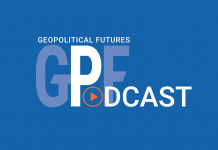
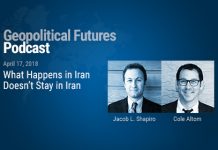


 The Geopolitics of the American President
The Geopolitics of the American President